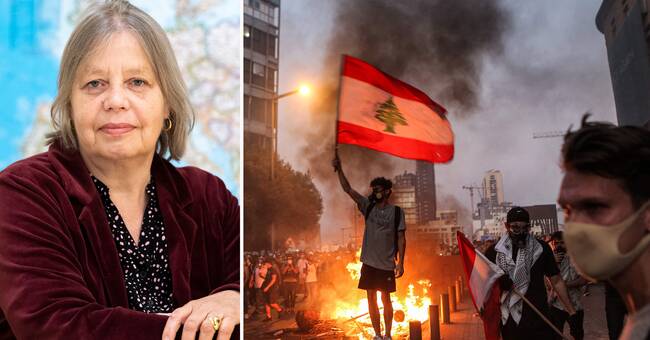Hundreds of thousands of people lost their homes on August 4, 2020, when one of the most powerful non-nuclear explosions in world history destroyed large parts of Beirut.
The city is now slowly being built up, but large parts of the city are still in ruins and many are struggling to make ends meet.
Middle East expert Bitte Hammargren describes the situation as catastrophic.
- It is politicians who bind each other back, who protect each other, who refuse to agree to transparency and who have also created the deadlocks that mean that Lebanon still does not have a regular government.
In addition, judges are fired who go too far and demand transparency and want to waive immunity from those responsible.
- The judiciary does not work, says Bitte Hammargren.
According to her, there has been a spirit of impunity since the civil war in Lebanon, which even today makes it impossible to hold those responsible accountable.
Well-educated are fleeing
Many well-educated people have left the country after the explosion, others are on their way.
- It should be clear that there is very strong pessimism because the state is absent where it is needed to help its citizens.
We have increasing child poverty and a lack of health care that works, unemployment that is rock hard and the currency that just falls like a rock, says Bitte Hammargren.
Fight for the Interior Ministry
At the same time, there is a primordial force among the Lebanese themselves in the ability to help ordinary people organize aid, says Bitte Hammargren.
- To then channel it to political systems that can shake up a corrupt political class is a monumental work.
According to her, there is a fierce battle for the Ministry of the Interior in the wake of the explosion.
- It is the Ministry of the Interior that holds its hand over the election that will take place next year.
And the president wants to see his son-in-law as the next president.

